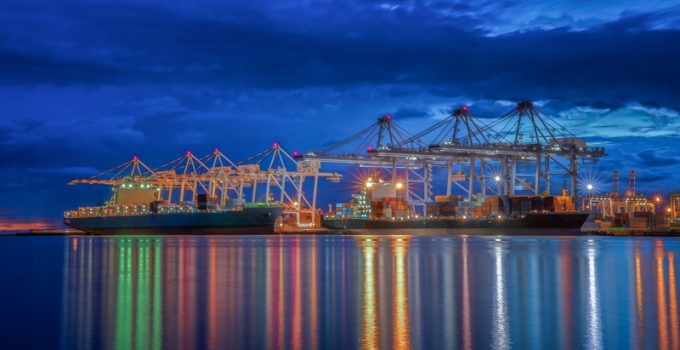Liners unveil Asia-Europe FAK price hikes to arrest steady rate decline
Container shipping lines are looking for a hike in Asia-Europe spot freight rates, announcing a ...

This month has seen the return of container rollovers in loading ports out of Asia as carriers continue to trim capacity.
Several reports have come into The Loadstar this week that some Asia-North Europe ocean carriers have been discharging containers loaded in China at transhipment ports en route, so they can accommodate better-paying cargo.
And this week both the Shanghai Containerized Freight Index (SCFI) and Ningbo Containerized Freight Index (NCFI) referred to carriers “off-loading containers” at way ports.
As a consequence of the aggressive blanking policies by carriers, some westbound sailings prior to the Chinese new year on 25 January are reported to have been 50% overbooked, which means even VIP contract customers have been fighting daily to ensure their boxes are shipped.
“Only one or two premium shipping lines have the decency to pre-warn customers that their containers have been nominated for rolling,” said UK-based forwarder Westbound Logistics.
“When a vessel is overbooked, they will choose a batch of containers to offload at a connecting port such as Singapore or Kuala Lumpur, making way for other protected contract business,” said Ryan Clark, director and co-owner of the London Gateway-headquartered firm.
Meanwhile, today’s SCFI recorded a 4.5% dip in spot rates for North Europe to $1,010 per teu as some carriers offered discounts on post-CNY bookings.
However, an NVOCC source told The Loadstar today the spot rates were “immaterial”.
“You might be able to book at that rate, but you have absolutely no idea when you are going to get the boxes shipped,” she said.
For the Asia-Mediterranean trade, the SCFI component remained at $1,180 per teu this week, with reports of similar rollover and transhipment issues affecting the route.
Having built up a substantial amount of rolled-over and transhipped cargo on the quay, container lines will look to avoid the normal downward pressure on rates during the slack period after the CNY.
Notwithstanding the absence of schedule reliability, Mr Clark thought that carriers would probably achieve their objective in propping up rates, and he did not expect them to fall much after CNY.
He told The Loadstar this morning: “There are so many blank sailings, it’s hard to see how anyone will get boxes shipped in the first place – rate wise I can only see a small drop, nothing crazy.”
Elsewhere, transpacific ships have also been running full, leading to rollovers, and spot rates recorded by the SCFI ticked up 1.2% this week for US west coast ports, to $1,562 per 40ft. For east coast destinations there was a 1.9% increase, to $2,943 per 40ft.
Ocean carriers on transpacific routes announced another batch of blank sailings this week, which OOCL called a “response to the market downturn in the lunar new year period”.
Meanwhile, there has also been a cautious welcome given by carriers to the Phase One trade deal between the US and China signed in Washington this week. George Griffiths, editor, global container freight market at S&P Global Platts, said carriers had “breathed a sigh of relief”.
“In their eyes it will boost the importing demand for US companies and also increase the cargo offered on a back-haul basis,” said Mr Griffiths.
Comment on this article